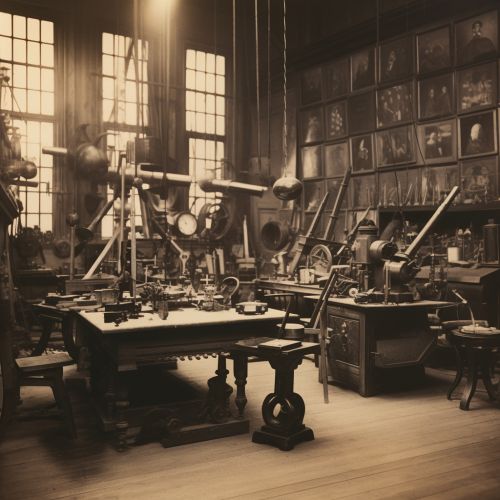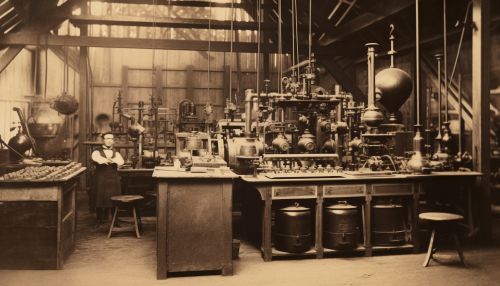Alfred Nobel
Early Life
Alfred Bernhard Nobel was born on October 21, 1833, in Stockholm, Sweden. His father, Immanuel Nobel, was an engineer and inventor who built bridges and buildings in Stockholm. In connection with his construction work, Immanuel Nobel also experimented with different techniques for blasting rocks.
Family's Financial Struggles
In 1837, Immanuel Nobel's business suffered significant losses, leading to bankruptcy. This forced Alfred Nobel and his family to move to Saint Petersburg, Russia, where Alfred's father started a mechanical factory which provided equipment for the Russian army. The factory also produced naval mines, which were used by the Russian navy during the Crimean War.
Education
In Russia, Alfred Nobel received a private education in natural sciences, languages, and literature. He was a quick learner and by the age of 17, he was fluent in Swedish, Russian, French, English, and German. His interest in literature remained throughout his life, and he wrote poetry and drama in his spare time.
Invention of Dynamite
In 1863, Nobel invented a detonator which could safely detonate Nitroglycerin, a highly volatile and dangerous compound. In 1865, he invented the blasting cap, which could be ignited by lighting a fuse. These inventions marked the beginning of a long series of patents on explosives and methods for their manufacture. Nobel's inventions made the use of explosives much safer and more practical.
In 1867, Nobel invented Dynamite, a safer and more manageable form of nitroglycerin. Dynamite was patented in the US and the UK and was used extensively in mining and construction projects around the world.
Business Ventures
Nobel and his family established 90 armaments factories, despite their pacifist leanings. By the time of his death in 1896, Nobel held 355 patents, many of which were for explosives.
Nobel Prizes
In his will, Alfred Nobel left 94% of his fortune to establish the Nobel Prizes. These prizes are awarded annually for achievements in physics, chemistry, medicine, literature, and for work in peace. The prizes were first awarded in 1901.
Death
Alfred Nobel died of a stroke on December 10, 1896, in San Remo, Italy. He left his entire estate to fund the Nobel Prizes, which are awarded each year on the anniversary of his death.
Legacy
Alfred Nobel's legacy is a complex one. He is remembered as the inventor of dynamite and as the founder of the Nobel Prizes. His inventions have had a significant impact on the fields of construction, mining, and warfare. However, his establishment of the Nobel Prizes has also made a significant contribution to the fields of science, literature, and peace.


